How to get rid of ants outdoors without killing plants – experts share 5 natural deterrents
It's important to get on top of any ant problems in the yard to avoid damage and interruption to plant growth

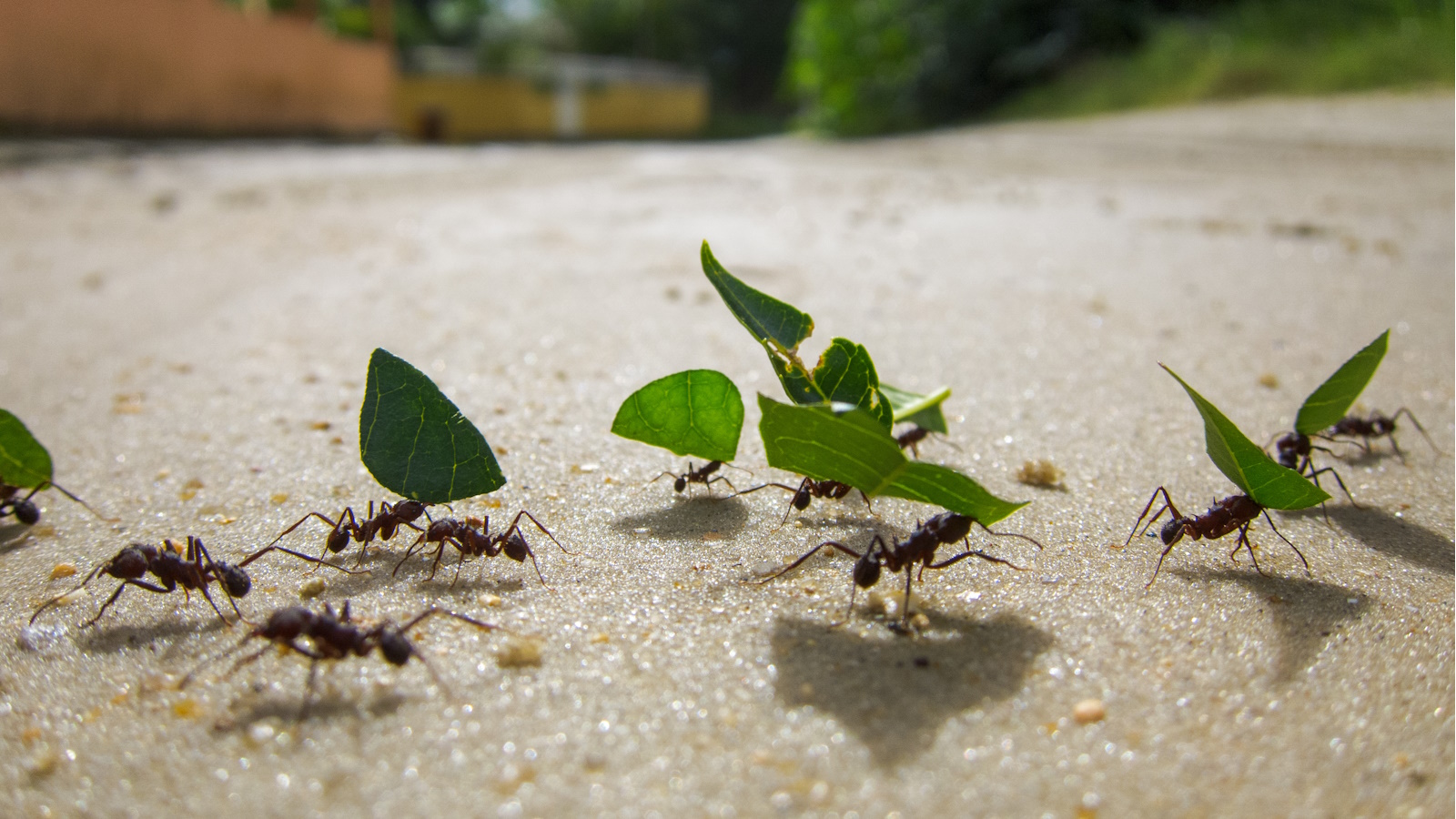
Design expertise in your inbox – from inspiring decorating ideas and beautiful celebrity homes to practical gardening advice and shopping round-ups.
You are now subscribed
Your newsletter sign-up was successful
Want to add more newsletters?

Twice a week
Homes&Gardens
The ultimate interior design resource from the world's leading experts - discover inspiring decorating ideas, color scheming know-how, garden inspiration and shopping expertise.

Once a week
In The Loop from Next In Design
Members of the Next in Design Circle will receive In the Loop, our weekly email filled with trade news, names to know and spotlight moments. Together we’re building a brighter design future.

Twice a week
Cucina
Whether you’re passionate about hosting exquisite dinners, experimenting with culinary trends, or perfecting your kitchen's design with timeless elegance and innovative functionality, this newsletter is here to inspire
One of the pains gardeners have to endure is dealing with pests and diseases. Ants, like other pests, can be a nuisance despite playing an important role in the ecosystem of your backyard.
However, if ants aren't kept under control they can cause damage by disturbing plant roots. If you've already researched how to get rid of ants in your home and how to get rid of ants on lawns but don't know where to get started with getting rid of ants outdoors without killing your plants, look no further.
We've asked experts for natural deterrents that will get rid of ants and keep your plants safe.
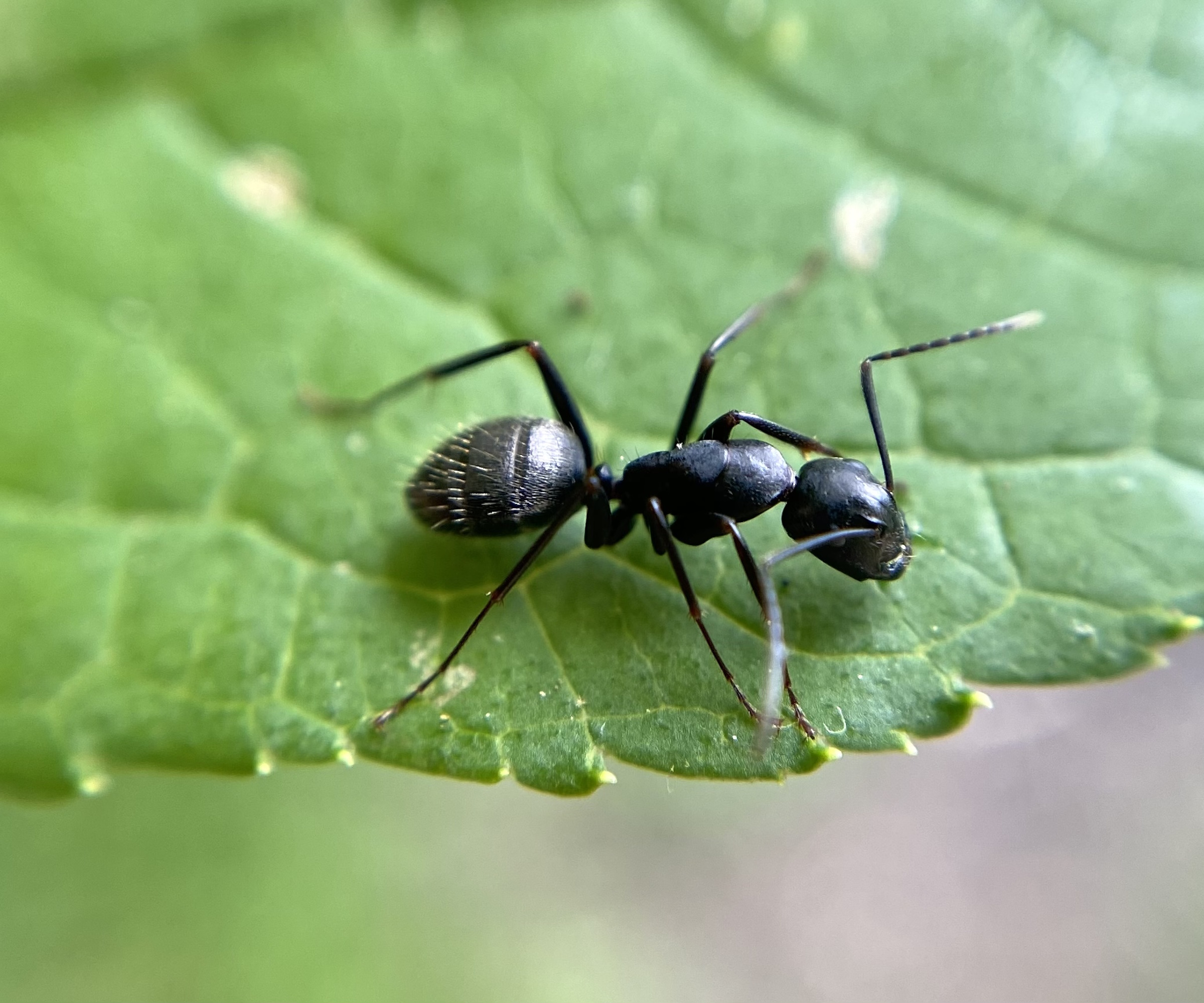
5 ways to get rid of ants outdoors without killing plants
Although good for the ecosystem, ants can become a nuisance if they disturb the growth of your plants.
'Most ants are beneficial in the environment. In fact, many native ant species help control pest ants that try to establish in yards and invade homes,' says Eric Benson, entomologist at the Clemson University Cooperative Extension.
'If possible, don’t use broad-spectrum insecticide sprays in the yard that kills all insects, including beneficial ants. If you kill beneficial ants, eventually new ants will move back into the yard and the new ants are likely to be pest ants,' he continues.
That's why it's better to naturally deter ants from your yard. We've compiled an expert list of ways to get rid of ants outdoors without killing your plants.
Design expertise in your inbox – from inspiring decorating ideas and beautiful celebrity homes to practical gardening advice and shopping round-ups.

Dr. Benson received his BS degree in animal science from the University of Vermont in 1979 and his MS degree in biology from Fairleigh Dickinson University in 1984 and his PhD in entomology from Clemson in 1988. He is now an Extension Entomologist at Clemson University.
1. Spread coffee grounds around the base of your plants

When deterring ants, it's important to know what will keep them away - strong smells. Not only are coffee grounds good for plants, but they can be used to keep ants away.
'Spread used coffee grounds around your plants. The strong smell and acidic nature help repel ants and other pests, while also enriching the soil as they decompose,' says Shannon Harlow-Ellis, Associate Certified Entomologist and Technical Services Manager at Mosquito Joe.
Coffee is strong in scent and makes the soil more acidic, making it an unfavorable environment for ants. Although, you should be aware where not to use coffee grounds in the garden to avoid any adverse impacts on your plants.
You can use your everyday coffee grounds from your coffee beans, like these coffee beans from Walmart.
You can also use cinnamon on lawns to get rid of ants using the same logic.

Shannon Harlow-Ellis, Associate Certified Entomologist (ACE) and Technical Services Manager for Mosquito Joe, has had a lifelong love affair with insects and arthropods. For the past 20 years, Shannon has been in the pest management industry and educating others about effective pest management and the biology, ecology, and behaviors of pests of medical importance.
2. Spray neem oil on the soil
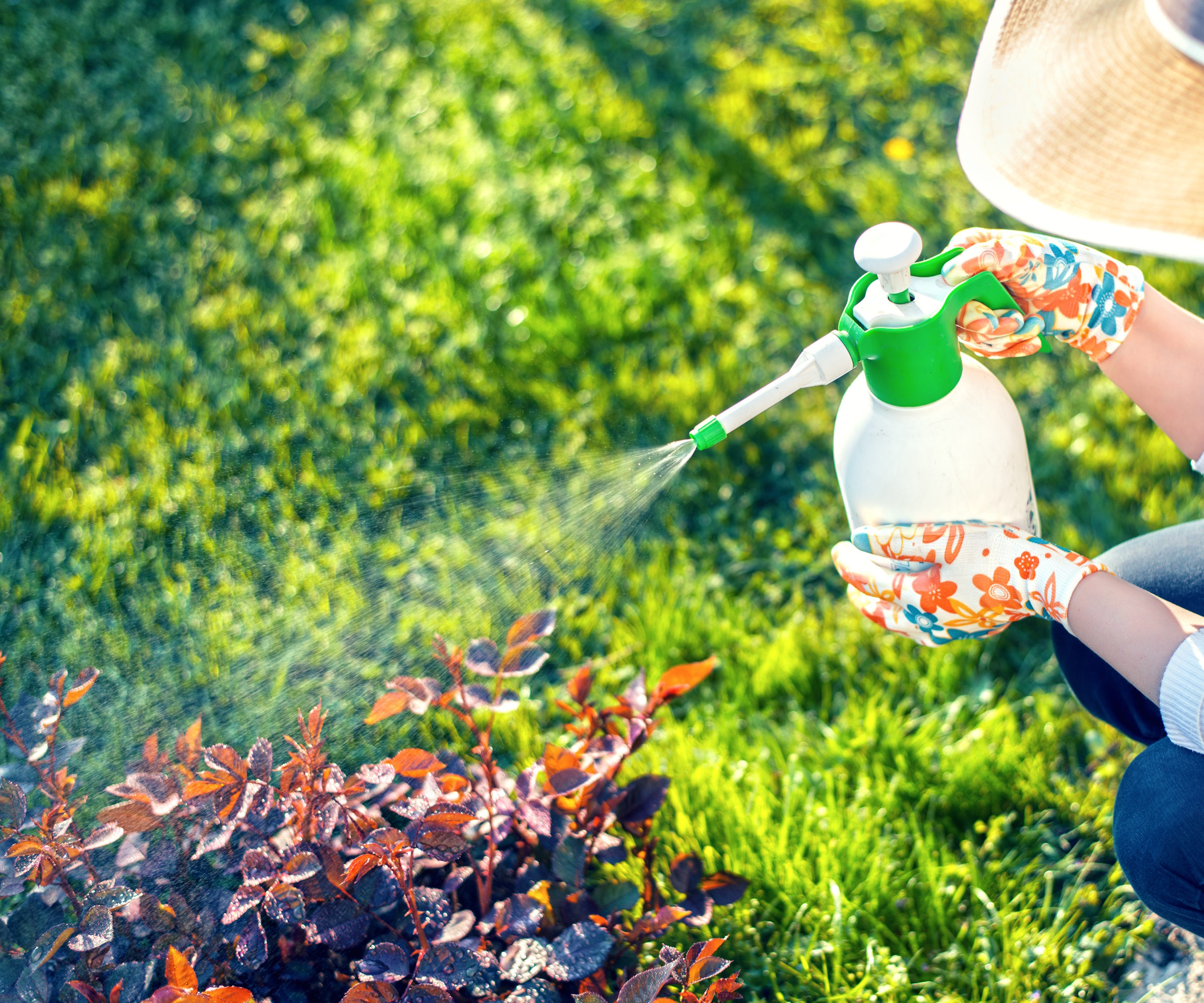
Another way to deter ants is by getting rid of their food source. This includes getting rid of aphids, as ants farm these for the honeydew they produce.
'When you really can't keep ants away from specific plants, I'd use neem oil on plants mixed with water and castile soap to spray on occasion,' says Allan Bossel, pest control expert and Operations Expert at BBE Bed Bug Exterminator.
'This oil kills aphids which are commonly a desirable food source for ants. It's also safe to ingest and won't harm most plants,' he adds.
You can use neem oil to also get rid of common houseplant pests, as it is a safe remedy to use on most plants. It's easiest to use neem oil as a spray, like this neem oil spray for plants from Amazon.

Allan Bossel currently serves as an Operations Expert at BBE Bed Bug Exterminator, where his extensive experience in bed bug and pest control allows him to maximize BBE’s service potential. Having founded his own pest control business in Michigan, Allan’s background is rich with over a decade of professional pest extermination and lab work experience.
3. Place citrus peel around the base of your plants
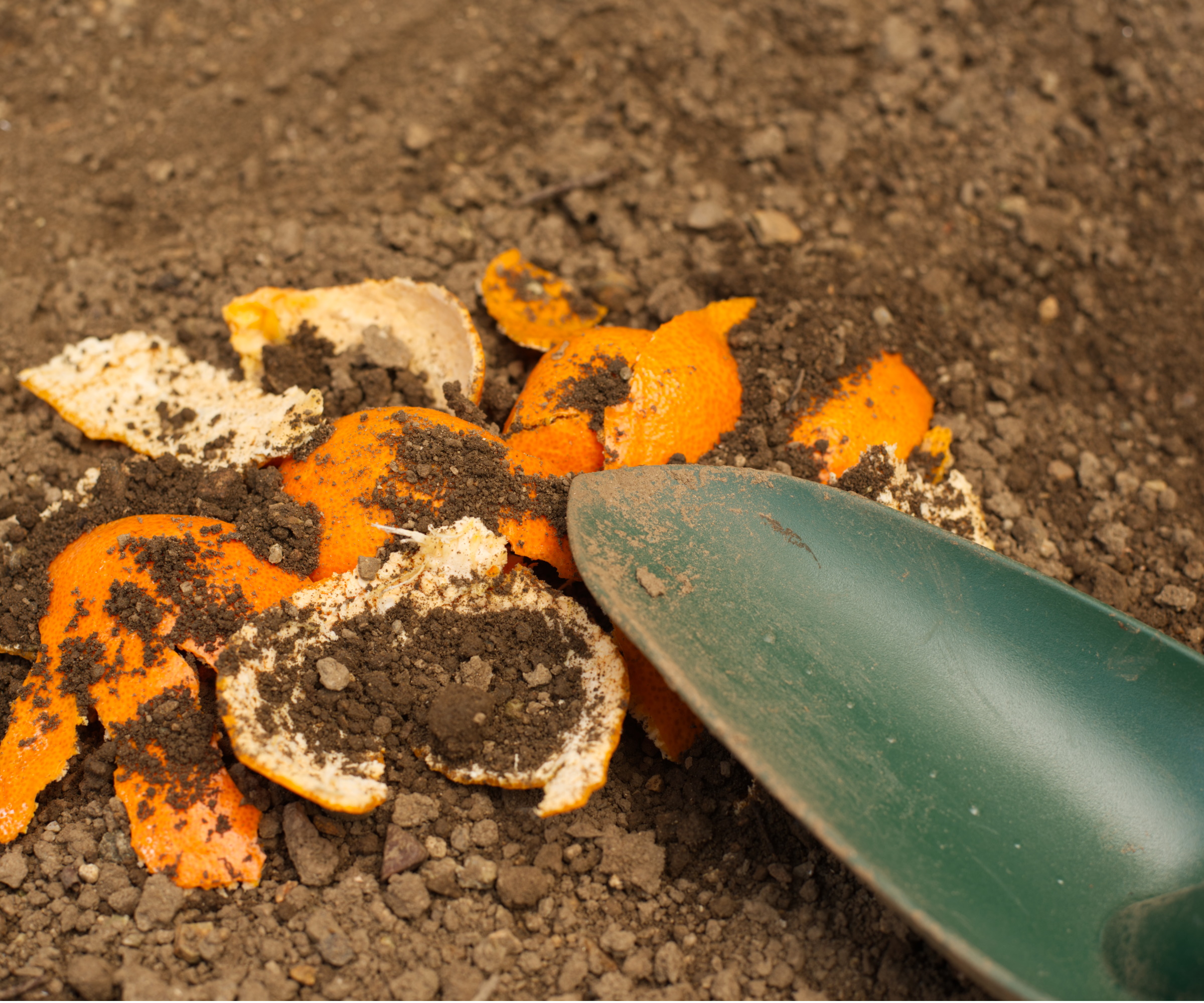
In a similar way to coffee grounds, you can use orange peels on plants to deter ants with their strong scent.
'One good method is the use of citrus peel or citrus-infused water, which is known to repel ants. Simply soak some citrus peels in water for a couple of days, then pour the liquid directly onto the ant hills in your garden,' says Darren Muzzy, gardening expert at Michigan Tree Experts. 'Alternatively, you can scatter the peels around the base of plants. Ants dislike the smell of citrus and will move away,' he adds.
The strong scent of citrus peels will keep ants away while your plants benefit from the phosphorus and potassium that the peels provide to the soil. You can just use everyday kitchen waste, or find citrus pest control concentrates, like this citrus insect control from Amazon.

Darren Muzzy currently serves as the Director of Sales & Operations at Michigan Tree Experts. Born in California and now rooted in Michigan, Darren is a renowned tree care and gardening expert.
4. Choose fragrant companion plants
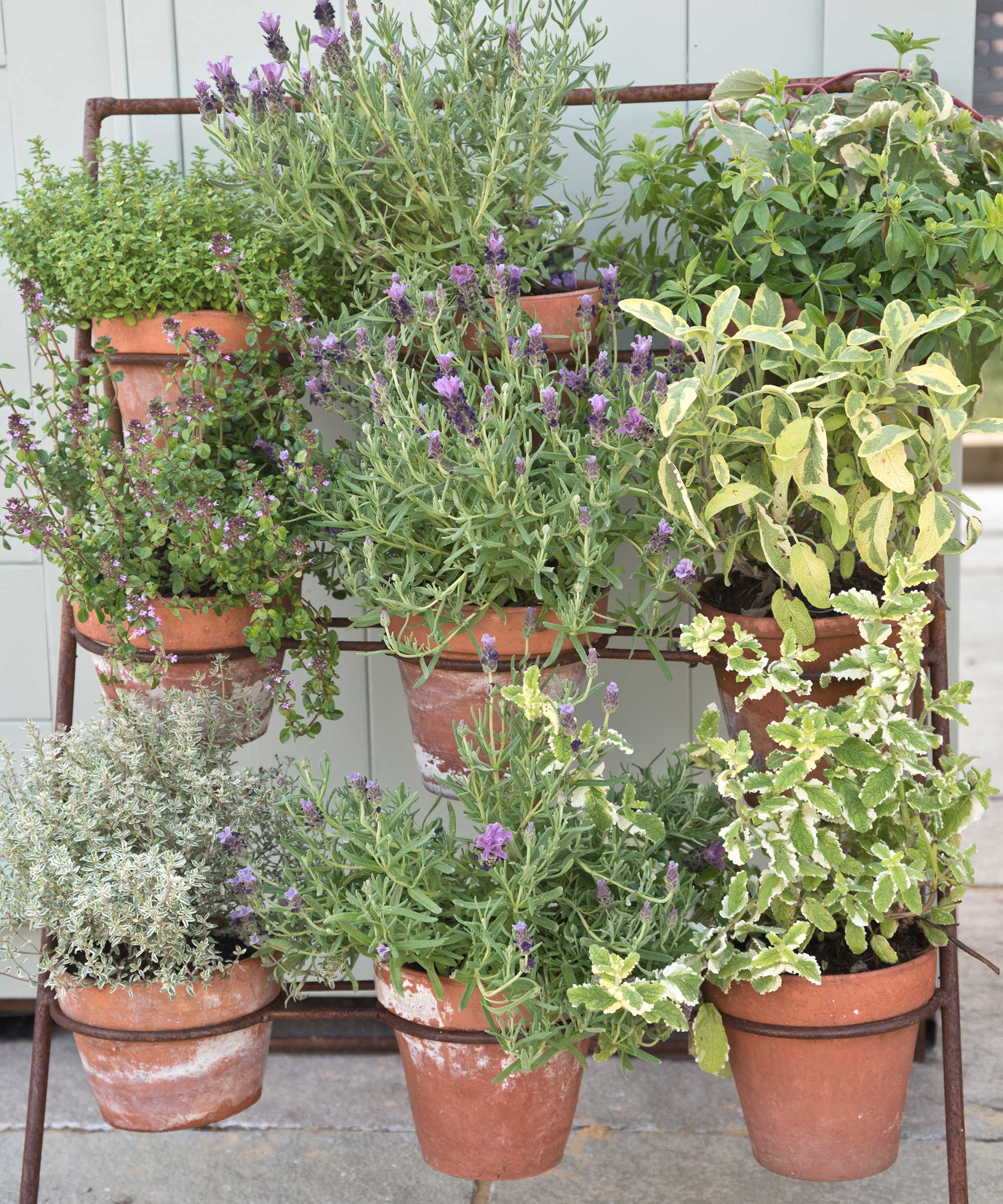
You can put precautions in place to protect specific plants from ants by adding companion planting that will keep them away.
'Using plants with strong smells like garlic, mint and rosemary can deter ants. They’re not big fans of overpowering smells and these plants work as natural repellents,' says Darren.
There are plenty of aromatic herbs to choose from when deciding which fragrant plants to use to deter ants. You can likewise design a fragrant garden to make your backyard unattractive to many pests.
Find an assortment of herb seeds online to get you started, like this herb seed variety pack from Amazon.
5. Make a vinegar solution

You can also make plenty of homemade bug sprays to get rid of ants, like a vinegar solution. Not only will the scent drive ants away, it can prevent them revisiting.
'Mix equal parts of vinegar and water and use it to spray around the garden,' says Shannon Harlow-Ellis. 'Vinegar's strong smell acts as a natural deterrent for ants and erases their scent trails, which are used to navigate back to food sources,' she adds.
Vinegar won't necessarily harm plants but you should take care to avoid spraying on foliage to avoid damage. You can also use different kinds of vinegar to reduce how acidic your spray is. For example, apple cider vinegar, like this apple cider vinegar from Walmart, has a lower acidic content but can still effectively deter ants.
FAQs
Why are there so many ants in my backyard?
If you have an ant infestation in your yard, it might be a sign that you have an aphids problem. Aphids are sap-sucking insects that feed on healthy foliage of plants and they are a food source for ants. To get rid of ants, it's important to keep the aphids in your garden under control. This includes using things like neem oil to get rid of them.
How do you get rid of ants on houseplants?
You might find ants in your houseplant soil if you have recently moved houseplants back inside or you have other common houseplant pests that ants feed on. You can get rid of ants in your houseplants without killing your plants by using things like neem oil or citrus sprays. These will remove the food source for ants and deter them while keeping your houseplants safe from damage.
Ants play an important role in the ecosystem but they can also be a nuisance if they disturb the growth of garden plants. These natural deterrents will get rid of ants outdoors without killing plants.
If you're having other pests problems and want to try more natural deterrents, explore our expert guide to spices to deter common garden pests.

Tenielle is a Gardens Content Editor at Homes & Gardens. She holds a qualification in MA Magazine Journalism and has over six years of journalistic experience. Before coming to Homes & Gardens, Tenielle was in the editorial department at the Royal Horticultural Society and worked on The Garden magazine. As our in-house houseplant expert, Tenielle writes on a range of solutions to houseplant problems, as well as other 'how to' guides, inspiring garden projects, and the latest gardening news. When she isn't writing, Tenielle can be found propagating her ever-growing collection of indoor plants, helping others overcome common houseplant pests and diseases, volunteering at a local gardening club, and attending gardening workshops, like a composting masterclass.